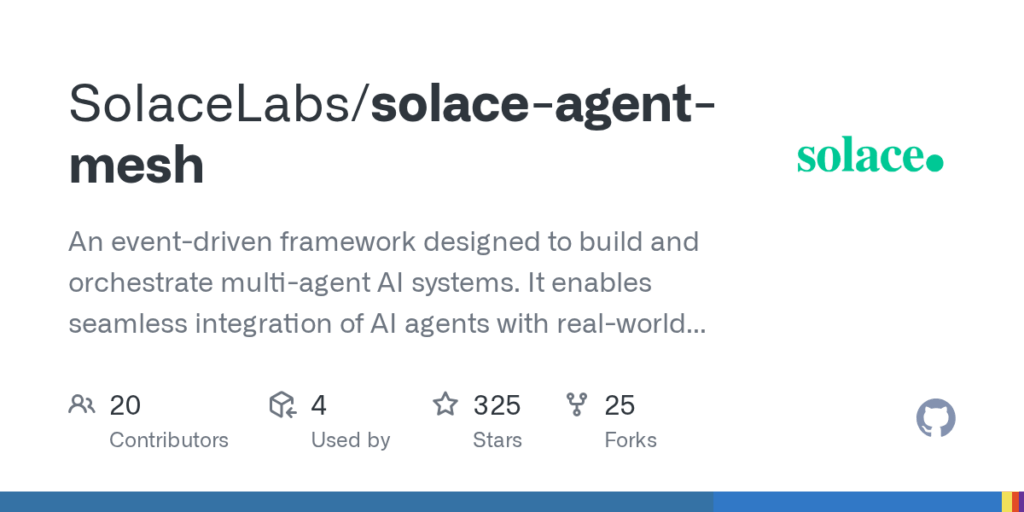solace agent mesh
Basic Information
Solace Agent Mesh is an open-source framework for building event-driven multi-agent AI systems where multiple specialized agents collaborate to solve complex problems. It provides a standardized, asynchronous communication layer using the Solace Platform so agents can discover peers, delegate work, and exchange data and artifacts. The project integrates the Solace AI Connector for broker connectivity and configuration and uses Google’s Agent Development Kit for agent runtime, LLM interaction, tools and state management. The repo includes tools and configuration to host agents, define capabilities via SAC YAML, manage file artifacts, and run a web UI and gateways for external integrations. The architecture emphasizes decoupling, scalability, reliability and production readiness for distributed AI workflows.








